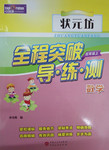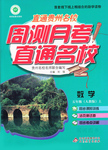题目内容
friends is grounded in mutual (相互的) care as our friends help us in shaping our personalities as well.
Even in this age of online social networking and e-cards, the need of keeping the network of friends,
whether online or offline remains a primary concern for people. We may not completely understand
what makes a friend but we all want to have a good number of friends around us.
The first step to make friends with someone is to make them like you. If they don't like you in the first
place, it is unlikely that they’ll be eager to become your friends. To let someone know that you are
specially interested in them, simple gestures like a little smile and calling them by their names can lay the
basic foundation. To make the other person feel important to you, you need to be a good listener and
encourage the other person to talk. Give your honest and sincere opinion but do not directly criticize or
make fun of him or her.
The second step of making someone your frien
 d is to develop a mutual understanding. You need to
d is to develop a mutual understanding. You need to share his or her experiences and it is necessary for you to develop a habit to see things from the other
person's point of view.
The third or final step towards friendship is to show your unconditional support and encouragement
towards your friend. Moreover, you also need to be very clear about your expectations from your friend.
If what you expect from the person you want to make friends with matches with what that person can
give, the developing friendship between you and your friend is sure to be successful.
 forming
forming B. changing
C. catching
D. losing
B. meet each other every
 day
dayC. care for each other
D. help each other to live a happy life
B. It is very important to understand each other.
C. It is a duty for you to meet your friends' need all the time.
D. We had better keep silent when staying with our friends.
B. make him or her feel more important than you
C. never expect him or her to support you
D. have your own ways of seeing things

 状元坊全程突破导练测系列答案
状元坊全程突破导练测系列答案 直通贵州名校周测月考直通名校系列答案
直通贵州名校周测月考直通名校系列答案The teacher was leaving the village, and everybody seemed sorry. The miller at Cresscombe lent him the small cart and horse to carry his goods to Christminster, the city of his destination, such a vehicle proving of quite enough size for the teacher's belongings. For his only article, in addition to the packing-case of books, was a piano that he had bought when he thought of learning instrumental music. But the eagerness having faded he had never acquired any skill in playing, and the purchased article had been a permanent trouble to him.
The headmaster had gone away for the day, being a man who disliked the sight of changes. He did not mean to return till the evening, when the new teacher would have arrived, and everything would be smooth again.
The blacksmith, the farm bailiff and the teacher were standing in confused attitudes in the sitting room before the instrument. The teacher had remarked that even if he got it into the cart he should not know what to do with it on his arrival at Christminster, since he was only going into a temporary place just at first.
A little boy of eleven, who had been assisting in the packing, joined the group of men, and said, ‘Aunt has got a fuel-house, and it could be put there, perhaps, till you’ve found a place to settle in, sir.’
‘Good idea,’ said the blacksmith.
The smith and the bailiff started to see about the possibility of the suggested shelter, and the boy and the teacher were left standing alone.
‘Sorry I am going, Jude?’ asked the latter kindly.
Tears rose into the boy’s eyes. He admitted that he was sorry.
‘So am I,’ said Mr. Phillotson.
‘Why do you go, sir?’ asked the boy.
‘Well—don't speak of this everywhere. You know what a university is, and a university degree? It is the necessary hallmark (标志) of a man who wants to do anything in teaching. My scheme, or dream, is to be a university graduate. By going to live at Christminster, I shall be at headquarters, so to speak, and if my scheme is practicable at all, I consider that being on the spot will afford me a better chance.’
The smith and his companion returned. Old Miss Fawley's fuel-house was practicable; and she seemed willing to give the instrument standing-room there. So it was left in the school till the evening, when more hands would be available for removing it; and the teacher gave a final glance round.
At nine o'clock Mr. Phillotson mounted beside his box of books, and waved his friends good-bye.
【小题1】It seemed that the teacher _____.
| A.was not getting on well with the headmaster |
| B.had lived a rather simple life in the village |
| C.was likely to continue to practice playing the piano |
| D.would get help in the city on arriving there |
| A.ambition | B.devotion | C.admiration | D.inspiration |
| A.polite, generous and cheerful | B.active, modest and friendly |
| C.kind, bright and helpful | D.calm, confident and humorous |
| A.love for music and his dislike for musical instruments |
| B.hard work in the village and his strong interest in city life |
| C.friendship with some villagers and also conflicts with others |
| D.eagerness to go to the city and his affection for the village |
OLYMPIA, March 24—Luo Xuejuan, a swimming gold medalist at the Athens 2004 Olympic Games, became the first Chinese person to relay the Olympic Flame in Greece on Monday, receiving the flame from the first Olympic torchbearer(火炬手), Greek Alexandros Nikolaidis.
Despite her previous experience as a torchbearer in the Beijing leg of the Athens 2004 torch relay, Luo felt honored and proud of being chosen as the first Chinese torchbearer, the Xihua News Agency reported Luo as saying in an interview.
She talked about the great responsibility that she felt, as she believed she was representing every Chinese athlete and even Chinese person by running her leg of the relay.
Regarding missing the torch lighting ceremony because she had to be in an assigned location to wait for the flame, Luo felt no regret. “Even though I couldn’t see it, I was able to feel the flame light and knew that it was happening at a place nearby,” she said.
Luo expressed her belief that even if people couldn’t communicate with words, the Olympic Flame enables the transmission of the Olympic spirit and brings smiles wherever it might go. In Luo’s mind, the Olympic spirit represents purity, competition, friendship, enthusiasm, peace and harmony.
【小题1】Why didn’t Luo see the torch lighting ceremony?
| A. She was late for the ceremony. |
| B. She was not allowed to go there. |
| C. She waited for the flame as the next torchbearer. |
| D. The ceremony took place at a place far away. |
| A. One of the long parts that connect the feet to the rest of the body. |
| B. The part of a pair of trousers. |
| C. One of the long thin parts on the bottom of a table. |
| D. One part of a journey or race. |
| A. Luo Xuejuan was the first Olympic torchbearer in Greece. |
| B. Luo had never been selected as a torchbearer before. |
| C. Luo believed that the Olympic flame helped communication among people. |
| D. Luo felt regretful because she missed the torch lighting ceremony. |
| A. Luo Xuejuan: A Swimming Gold Medalist. |
| B. The Torch Lighting Ceremony |
| C. The Torch Relay Had Begun |
| D. Luo Xuejuan: the First Chinese Torchbearer of Athens Torch Relay |
| A. novel | B. newspaper | C. magazine | D. textbook |